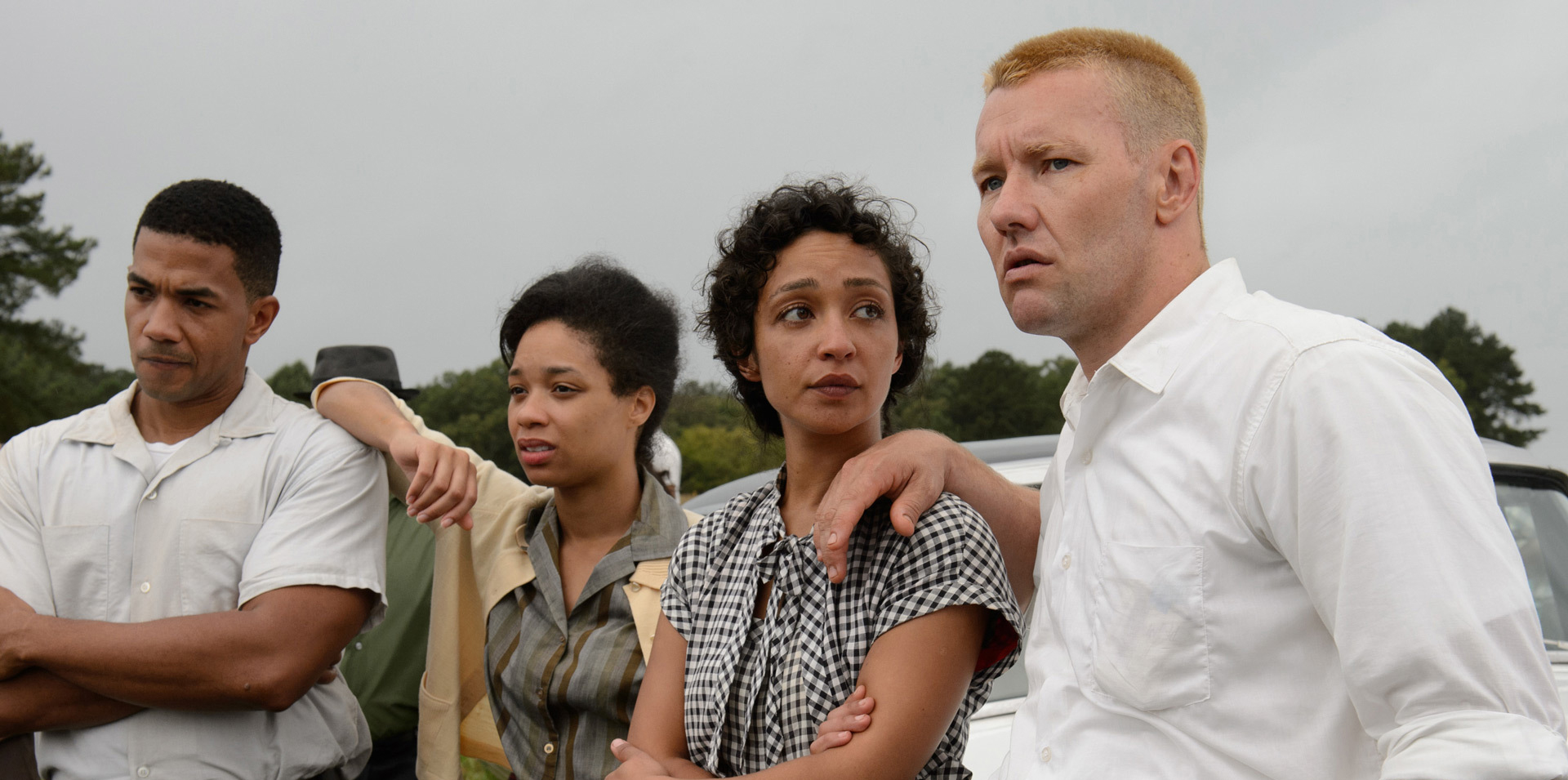Loving Review

Genre: Biography, Drama, Romance
Directed by: Jeff Nichols
Starring: Ruth Negga, Joel Edgerton, Will Dalton, Nick Kroll
Some directors would have created a righteous and loud film about Richard and Mildred Loving (Joel Edgerton and Ruth Negga), the couple at the centre of a landmark civil rights case. It could have been a drama with a capital ‘D’. That isn’t Jeff Nichols’s style. In Loving, he tells the titular characters’ tale as a love story, not a civil rights drama. There are no rousing third-act speeches here, just an understated and delicate story of two people falling in love and staying together, no matter the cost.
Loving is powerful because of how quiet it is. By making a love story, Nichols cuts straight through to the beating heart of his film: Richard and Mildred’s relationship. The time spent with the characters and the recognisable situations they go through, like how nervous Richard is when he proposes, neutralises the colour of their skin. We see them first as a couple, not as civil rights activists. This only serves to make their situation even more unjust.
By focusing on Richard and Mildred, Nichols makes the state intervention terrifying and turns the police into boogeymen. When they arrest the couple in the night, it is horrifying because we know miscegenation laws are disgusting, but also because Nichols has built the film to the point where anyone who has fallen in love could be Richard and Mildred. In a world where LGBTQ people are still beaten for who they love, framing the story as love trumps hate makes Loving transcend its interracial narrative. But, the film is smart enough to know it has to take part in the civil rights conversation. Like how Mildred understands people won’t look past the colour of her skin, Loving understands people won’t look past the story’s civil rights case. Mildred contacts Bobby Kennedy and the American Civil Liberties Union dispatch lawyers Bernie Cohen (Nick Kroll) and Phil Hirschkop (Jon Bass). Even as the case reaches the Supreme Court, Nichols keeps everything understated. He keeps the focus on the characters. Mildred knows the couple has to fight because of her life as an African-American living in the American south.
But, the film is smart enough to know it has to take part in the civil rights conversation. Like how Mildred understands people won’t look past the colour of her skin, Loving understands people won’t look past the story’s civil rights case. Mildred contacts Bobby Kennedy and the American Civil Liberties Union dispatch lawyers Bernie Cohen (Nick Kroll) and Phil Hirschkop (Jon Bass). Even as the case reaches the Supreme Court, Nichols keeps everything understated. He keeps the focus on the characters. Mildred knows the couple has to fight because of her life as an African-American living in the American south.
Richard, however, is reluctant to fight. Throughout the film and his life, he benefits from his white privilege. He is released from jail before a pregnant Mildred because he is a white man. Throughout his filmography, Nichols has always explored the crisis of masculinity, and with Richard, he subverts the idea of the patriarch. Richard might be the breadwinner but Mildred is the rock keeping the family together. Both actors are up to the task and give pure cinematic performances.
Edgerton suggests Richards struggle by changing his physicality, while Negga conveys everything through her eyes. Nichols rarely resorts to expository dialogue and he has found his perfect partner with Negga. The story is told through performance and in a near silent scene, one she shares with Nichols regular Michael Shannon as they talk about the court case, Negga conveys strength, humanity and how the story relates to the wider civil rights struggle by barely saying a word.
Even though the film nails the period detailing, Nichols’s quiet approach to his material makes the film transcend its setting; Richard and Mildred’s story is still relevant today. It could be anyone who has had external forces get in the way of love. With a quiet ferocity, Loving is a detailed and poignant character study looking at race, gender and the need to protect love no matter what.
★★★★★

